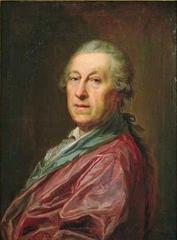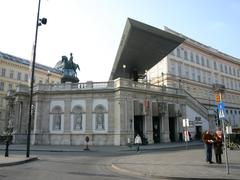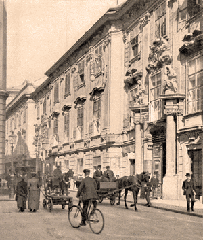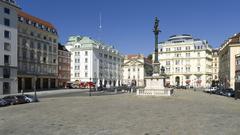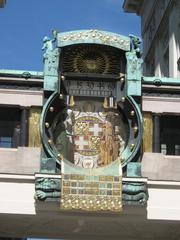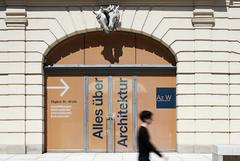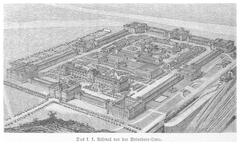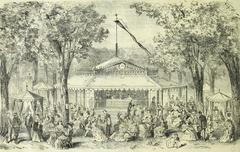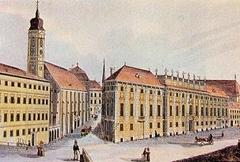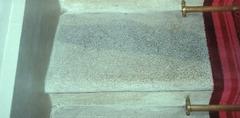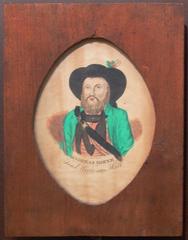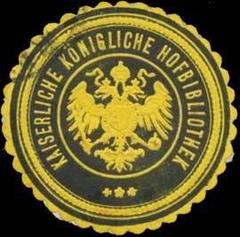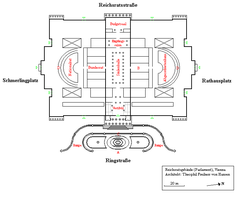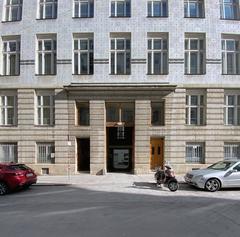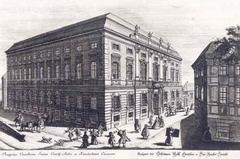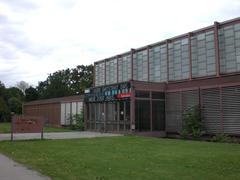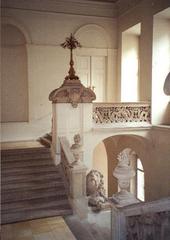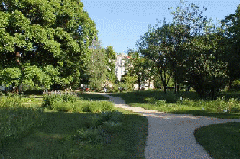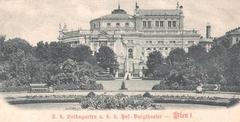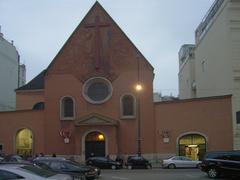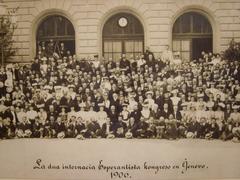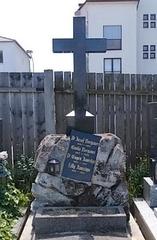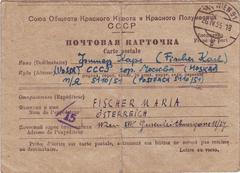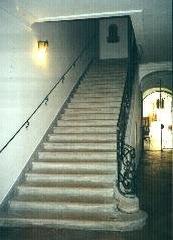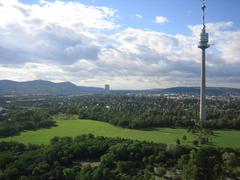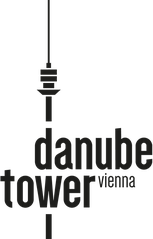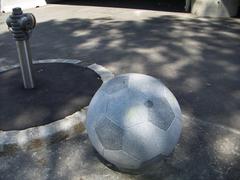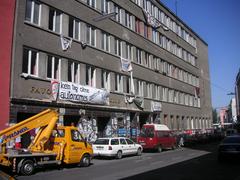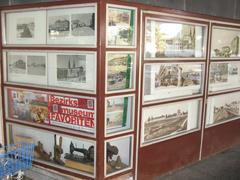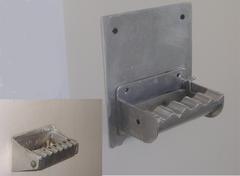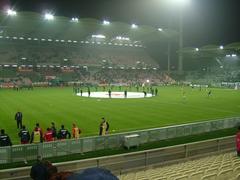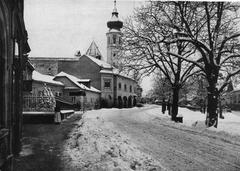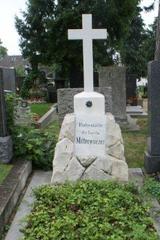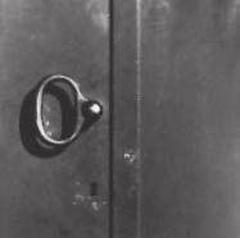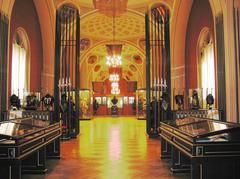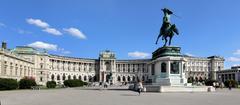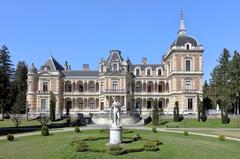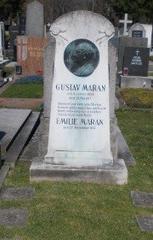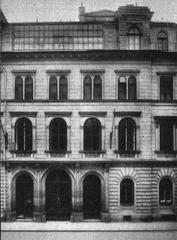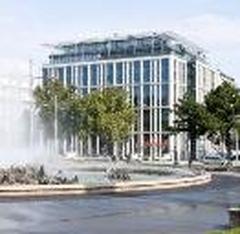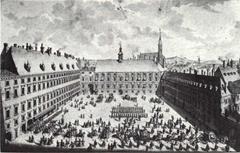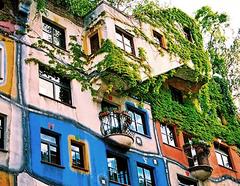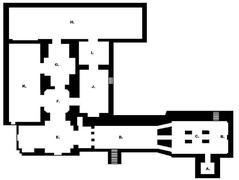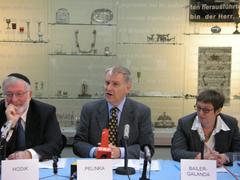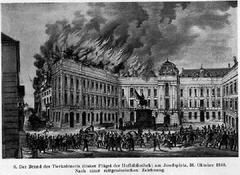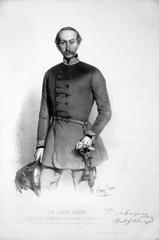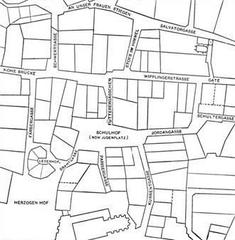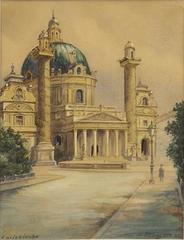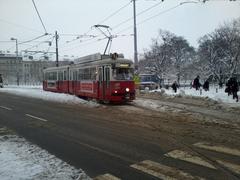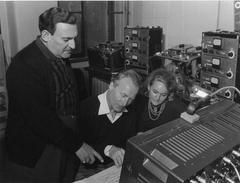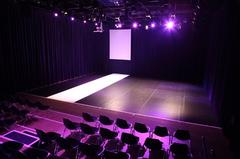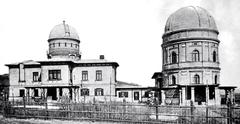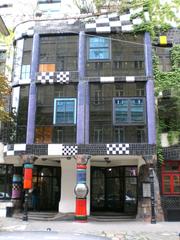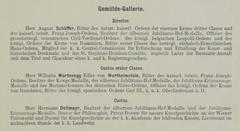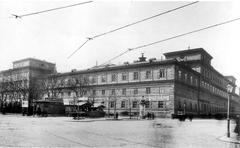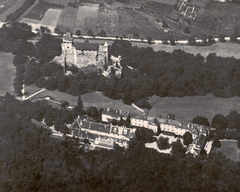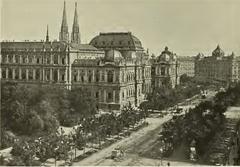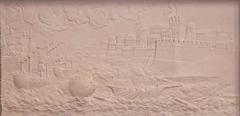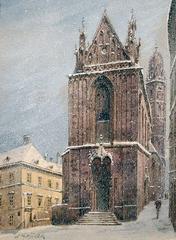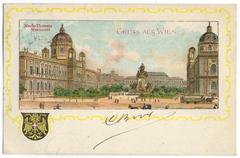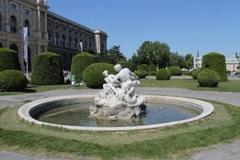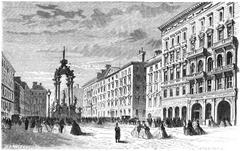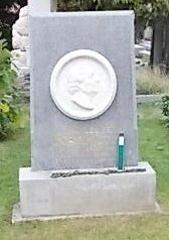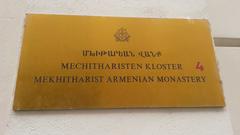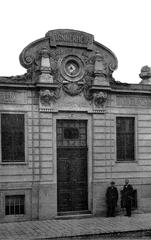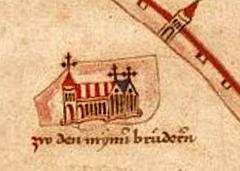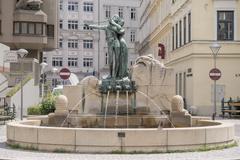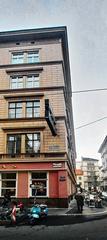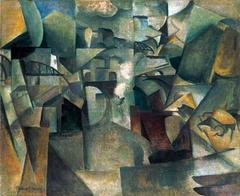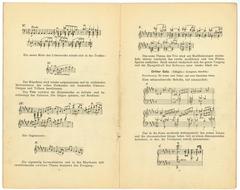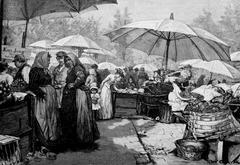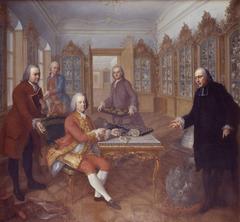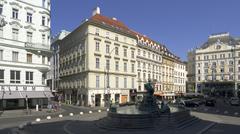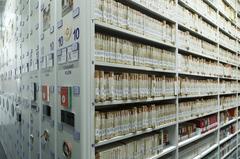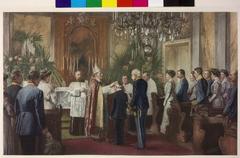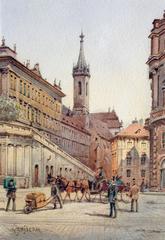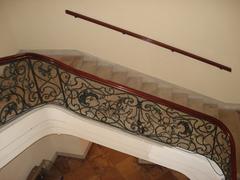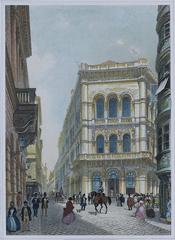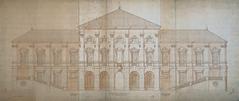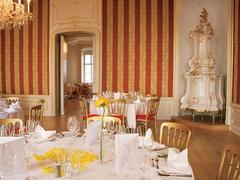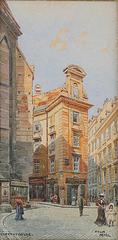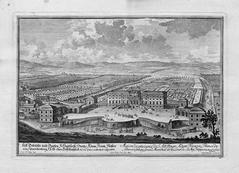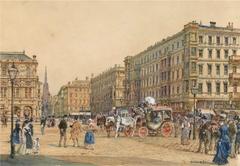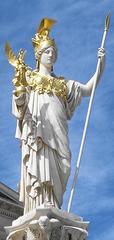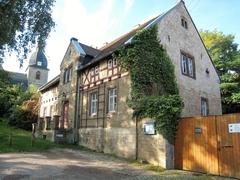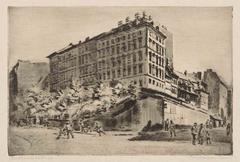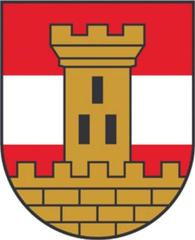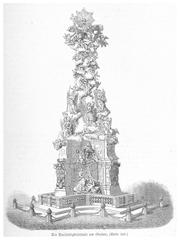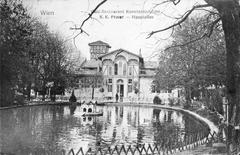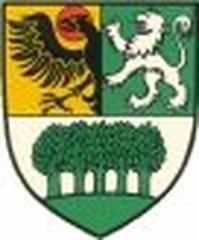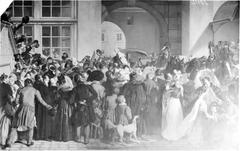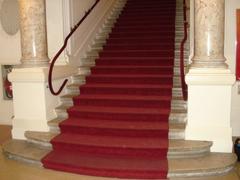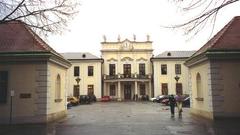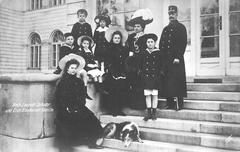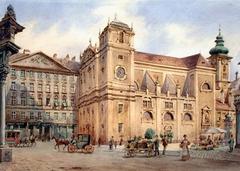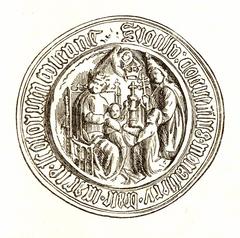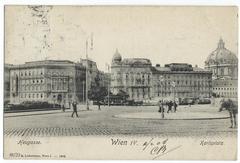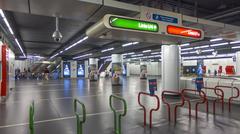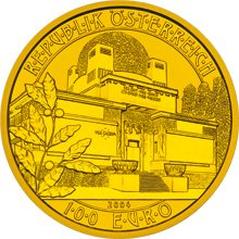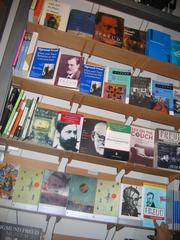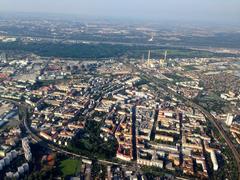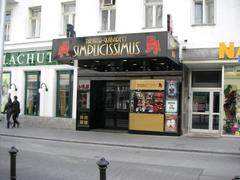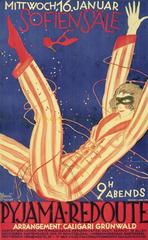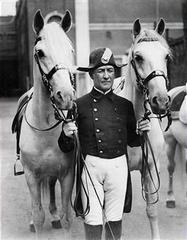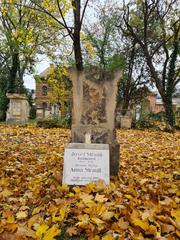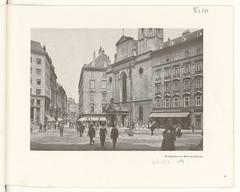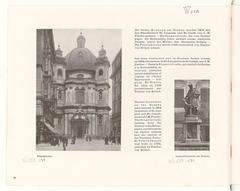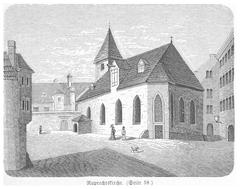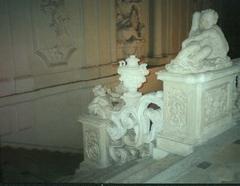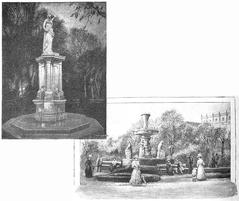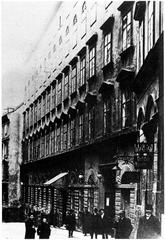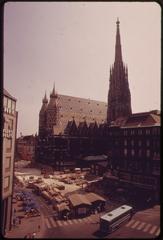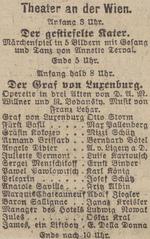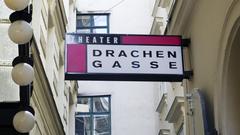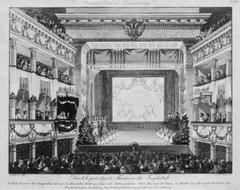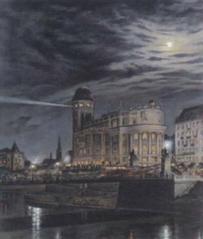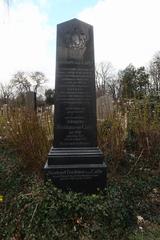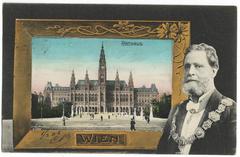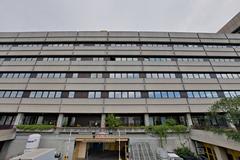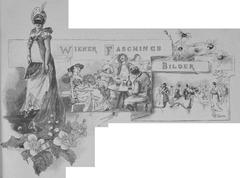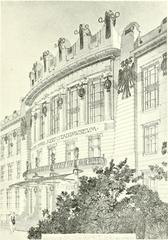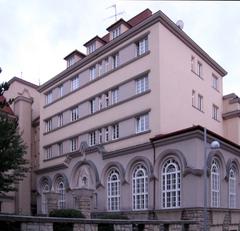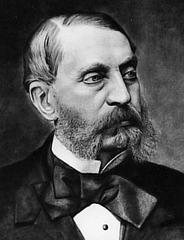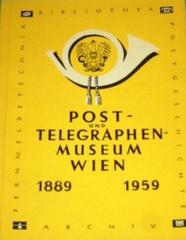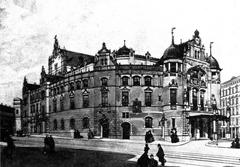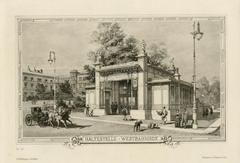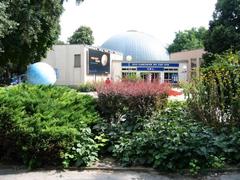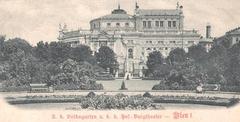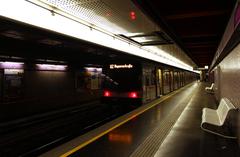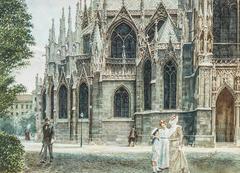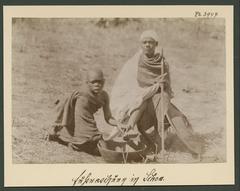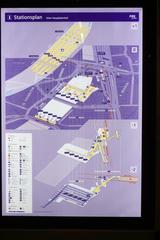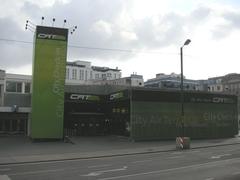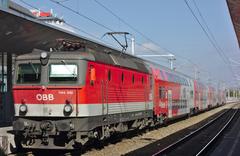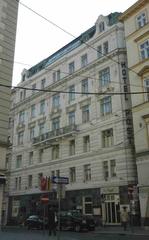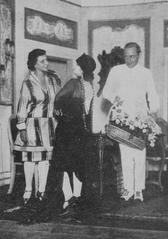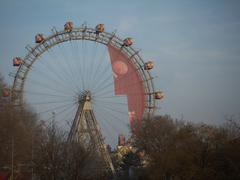Erwin Schrödinger International Institute For Mathematics And Physics
Erwin Schrödinger International Institute for Mathematics and Physics, Vienna: Visiting Hours, Tickets & Visitor Information
Date: 03/07/2025
Introduction
The Erwin Schrödinger International Institute for Mathematics and Physics (ESI), located in Vienna’s historic 9th district, is a leading hub for interdisciplinary research in mathematics and physics. Named after Nobel laureate Erwin Schrödinger—one of the most influential scientists of the 20th century—ESI stands at the intersection of Vienna’s rich academic heritage and modern scientific advancement. Founded in 1993 in a two-century-old former Catholic seminary at Boltzmanngasse 9, ESI has cultivated an environment where tradition and innovation merge, fostering international collaboration and breakthrough research. While primarily a research institute, ESI occasionally opens its doors to the public for lectures, workshops, and outreach events, offering unique insight into Vienna’s scientific and cultural milieu.
ESI’s central location ensures convenient access via public transportation, with nearby U-Bahn stations such as Schottentor and Alser Straße. Its proximity to cultural sites like the Sigmund Freud Museum and the University of Vienna makes it an ideal stop for those interested in Vienna’s academic and historical landscape. Although the institute does not maintain regular public visiting hours or a ticketing system, prospective visitors can find updated event schedules and information about occasional guided tours on the official ESI website. The institute is committed to accessibility and provides advance arrangements for visitors with mobility needs.
This comprehensive guide will help you plan your visit to ESI by detailing its history, significance, visitor procedures, facilities, nearby attractions, and practical tips. Whether you are a scientist seeking collaboration or a traveler curious about Vienna’s intellectual legacy, ESI offers a distinct opportunity to engage with the forefront of mathematics and physics and the enduring legacy of Erwin Schrödinger.
Table of Contents
- Overview
- Location and Accessibility
- Visiting Hours & Admission
- Facilities & Visitor Experience
- Historical Significance
- Nearby Attractions
- Practical Tips
- FAQs
- ESI’s Mission and Activities
- Participation and Events
- Health and Safety
- Unique Features
- Annual Events
- Digital Engagement
- Visual Resources
- Essential Contacts
- Summary & Final Tips
- References
Overview
The Erwin Schrödinger International Institute for Mathematics and Physics (ESI) is an internationally acclaimed research center at Boltzmanngasse 9, 1090 Vienna. It is renowned for fostering collaboration at the highest level and for its unique role in Vienna’s academic and cultural ecosystem.
Location and Accessibility
Address: Boltzmanngasse 9, 1090 Vienna, Austria
- Public Transport: Easily accessed via Vienna’s U-Bahn (underground) and tram networks. The closest stations are Schottentor (U2) and Alser Straße (U6), with several tram and bus stops nearby (Vienna Public Transport).
- Airport Access: Vienna International Airport (VIE) is connected to the city center by the City Airport Train (CAT) in about 16 minutes (Creative Travel Guide).
- Accessibility: The institute is wheelchair accessible. Visitors needing special arrangements should contact the ESI administration in advance.
Visiting Hours & Admission
- Opening Hours: Monday to Friday, 9:00 a.m. – 6:00 p.m. The entrance is typically locked during evenings, weekends, and public holidays; access outside standard hours requires prior arrangement.
- Public Access: ESI does not operate a public ticketing system. Visits are mainly by invitation, but public lectures, select workshops, and special events are occasionally open to wider audiences. Event schedules and visitor information are regularly posted on the ESI website.
- Registration: Invited guests receive personalized registration links and support for accommodation or travel needs (ESI info for guests).
Facilities & Visitor Experience
- Research & Seminar Spaces: ESI offers modern seminar rooms, the Boltzmann Lecture Hall, and collaborative offices in a historic building (ESI Annual Report 2021, p. 98).
- Library Access: Visitors may use the University of Vienna’s mathematics and physics libraries upon request.
- Dining: Numerous Viennese and international restaurants are within walking distance. The administration office can provide recommendations.
- Photographic Opportunities: The building’s historic and academic ambiance offers excellent photography spots for visitors.
Historical Significance
Founding and Vision
Established in 1993, ESI was conceived as a bridge between mathematics and physics, as well as between scientists from different countries—especially during a time of political transformation in Europe (ESI Annual Report 2021, p. 2). It honors Erwin Schrödinger’s legacy by advancing international collaboration and intellectual exchange.
Growth and Global Impact
Since its founding, ESI has evolved into a world-class institution, annually hosting hundreds of researchers and organizing major scientific events. Since 2011, ESI has been affiliated with the University of Vienna, further strengthening its academic outreach.
Nearby Attractions
Situated in the culturally rich Alsergrund district, ESI is close to:
- Sigmund Freud Museum
- University of Vienna
- Austrian National Library
- Vienna’s historic center (UNESCO World Heritage Site)
- Vienna State Opera, MuseumsQuartier, Hofburg Palace
- Traditional Viennese coffee houses
For more sightseeing ideas, visit Vienna’s official tourist site.
Practical Tips
- Best Time to Visit: Monitor the ESI website for public events and lectures.
- Advance Planning: Most participation is by invitation; contact the administration if interested in scheduled public events.
- Accommodation: The ARCOTEL Boltzmann Vienna and several other hotels are nearby (ESF Conference Venue).
- Transport: Consider purchasing a Vienna public transport pass.
- Language: German is official, but English is widely spoken at ESI and in Vienna’s academic circles.
- Safety: Vienna is very safe; standard precautions suffice (The Vienna Blog).
- Tipping: 5–10% is customary in restaurants and cafés.
Frequently Asked Questions (FAQ)
Q: Can I visit ESI without an invitation?
A: General public visits are not available. However, certain lectures and events are open to the public, as announced on the ESI website.
Q: Are there admission fees?
A: Most scientific events and lectures are free; some may require advance registration.
Q: Is the institute wheelchair accessible?
A: Yes. Contact ESI in advance for special requirements.
Q: How do I get to ESI by public transport?
A: Via the U2 line to Schottentor or U6 to Alser Straße, plus tram and bus connections.
Q: Are guided tours or exhibitions available?
A: Guided tours are not regularly offered but may be arranged for special events.
ESI’s Mission and Activities
ESI advances international and interdisciplinary research, focusing on the interplay between mathematics and physics (ESI Annual Report 2021, p. 2). The institute’s core objectives include:
- Fostering Scientific Exchange: Organizing thematic programmes, workshops, and fellowships.
- Supporting Early-Career Researchers: Via graduate schools and specialized seminars.
- Integration with the University of Vienna: Enhancing access to resources and mentorship (University of Vienna Faculty of Mathematics).
Participation and Events
- Thematic Programmes: Four to six per year, by invitation (ESI Activities).
- Workshops & Advanced Lectures: Topical events attracting international experts (ESI Annual Report 2020, p. 46).
- Public Lectures: Occasional events, such as the Erwin Schrödinger Lecture and Medal Award Ceremony (ESI News).
- Summer Schools: For students and emerging researchers (ISAPP School).
Health and Safety
- COVID-19 Protocols: As of July 2025, FFP2 masks are not mandatory inside ESI but are recommended for those feeling unwell. Masks remain compulsory on public transport and in medical facilities (Austria Coronavirus Information).
Unique Features of the ESI Experience
- Interdisciplinary Collaboration: ESI is a catalyst for breakthroughs where mathematics and physics meet (Wikipedia).
- Historic Setting: The former seminary building combines tradition with modern research infrastructure.
- International Community: Welcomes researchers from around the globe.
- Integration with Academic Vienna: Close ties to the University of Vienna and cultural institutions.
Notable Annual Events
- ESI Medal Award Ceremony: Recognizes outstanding achievements in mathematics and physics (ESI Medal).
- Erwin Schrödinger Lecture: Features talks by leading scientists.
Digital Engagement
- Hybrid and Online Participation: ESI incorporates digital elements in its events, fostering global engagement (ESI Annual Report 2020, p. 2).
- Visual Resources: Official images and videos available on the ESI website.
Essential Contacts & Resources
- ESI Administration Office: For visitor support and inquiries.
- Official ESI Website: https://www.esi.ac.at/info-for-guests
- Vienna Public Transport: https://www.wienerlinien.at
- Vienna Visitor Information: https://www.wien.info/en
- Audiala App for Guided Tours: https://www.audiala.com
Summary & Final Tips
The Erwin Schrödinger International Institute for Mathematics and Physics is a beacon of scientific excellence, historic significance, and cultural integration in Vienna. While its primary focus is on research and scholarly exchange, ESI extends its reach to the public through select events, contributing to the dialogue between science and society. Its accessible location, welcoming environment, and proximity to Vienna’s cultural landmarks make it a unique destination for academics and curious travelers alike.
Plan your visit by consulting the ESI website for upcoming events, visitor guidelines, and opportunities to participate. For enhanced exploration, download the Audiala app for guided tours of Vienna’s scientific and historical sites.
References
- ESI Official Website
- ESI Annual Report 2021
- ESI Information for Guests
- ESI Activities and Events
- Vienna Public Transport
- Vienna Visitor Information
- ISAPP Summer School on Gravitational Waves
- ESI Annual Report 2020
- The Vienna Blog: Practical Tips
- Wikipedia: ESI
- Austria Coronavirus Information
- Audiala App
